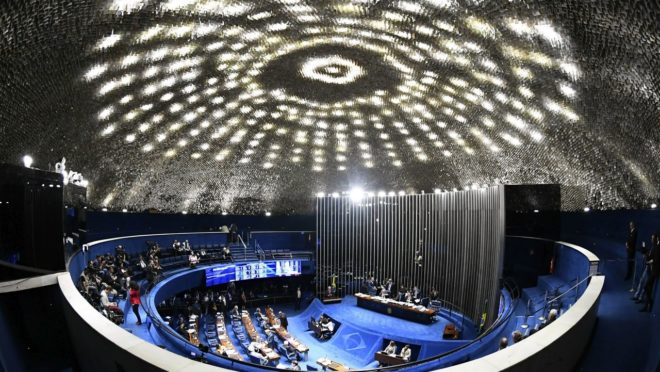With only a few weeks left before the inauguration of President-elect Luiz Inácio Lula da Silva, the wording of approval of a proposed constitutional amendment (PEC) that guarantees resources to pay the Bolsa Família R$600 in 2023 is at the center of political and economic news. The proposal is to leave these expenditures outside the spending cap to ensure that residents are assisted in case of social vulnerability.
Nobody disagrees with the need to secure this resource, but education also needs to take up space in this discussion. We need to draw attention to the need to untie the knot that has been pressing federal universities and institutes for a long time, even during the transitional period, and can be resolved through the approval of PEC 24, written by Federal Deputy Luisa Canziani (PSD -PR).
Preserving the originality of the proposal in defense of Brazilian education is essential for the development and strengthening of the country’s social and democratic structure.
This is the inclusion of the self-resources of these institutions within the limits of the Union’s spending ceiling. Explained: Part of the federal universities and institutes obtain their own income through agreements, contracts, donations, and in some cases the rental of real estate. These are extrabudgetary resources, but they ended up being included in the spending cap. In practice, this means that money enters, but it can end up idle if the spending ceiling is exceeded, which represents a disincentive for institutions to look for alternative sources of financing and expand bridges with society, in the private and public spheres.
In effect since 2019, PEC 24 states that expenditures of federal educational institutions financed through its revenues, agreements, or donations received by these institutions are excluded from the calculation rule and from the limits set in the public spending cap.
PEC 24 has already been discussed in several House committees and has now been consolidated by Transition PEC, presenting a golden opportunity for final approval. The proposal had the support of federal public universities from the start, through the National Association of Directors of Federal Institutions of Higher Education (Andifes), to facilitate access to resources important to maintaining the institutions.
It is important that the National Congress consider this and that the proposal be approved in full, so as to continue to ensure the development of scientific research and innovation in the country. In Brazil, scientific production comes almost entirely from public higher education institutions. Investments account for only 1.26% of GDP, compared to 1.79% of the global average. Despite all the difficulties, we were the third largest producer of scientific knowledge in the world in the period 2015-2020, equivalent to 3% of global scientific production, according to the Ministry of Science, Technology and Innovation.
Therefore, the data indicates the role of our public institutions in scientific production. We have many examples of companies and startup companies who are born within us Campusin university environments, which have contributed to the development and innovation of various production chains, with a focus on education, biodiversity, nanoparticles, livestock and agriculture.
The above statements prove that maintaining the originality of the proposal in defense of Brazilian education is fundamental to the development and strengthening of the social and democratic structure of the country, which will only be able to achieve the desired changes through education. Inequalities cannot be reduced, and there is no development or progress without good education and without a strong science and technology system.
In addition, there is another note in the ranking: PEC 24/2019 gives some impetus to some federal universities and institutes, but it cannot be considered as a solution to the problem of funding higher education. It is necessary to ensure that the budget of federal universities and institutes – which has seriously deteriorated in recent years – is reconfigured as a state policy, as part of the country’s development project. We cannot abandon standing up for education rights at this crucial time for the country and for democracy.
Louisa Kenziani Federal Deputy (PSD-PR); Ricardo Marcelo Fonseca He is Dean of the UFPR and President of the National Association of Directors of Federal Institutions of Higher Education (Andifes).

“Hardcore beer fanatic. Falls down a lot. Professional coffee fan. Music ninja.”






More Stories
The law allows children and adolescents to visit parents in the hospital.
Scientists pave the way for the emergence of a new element in the periodic table | World and Science
Can dengue cause hair loss? Expert explains how the disease affects hair